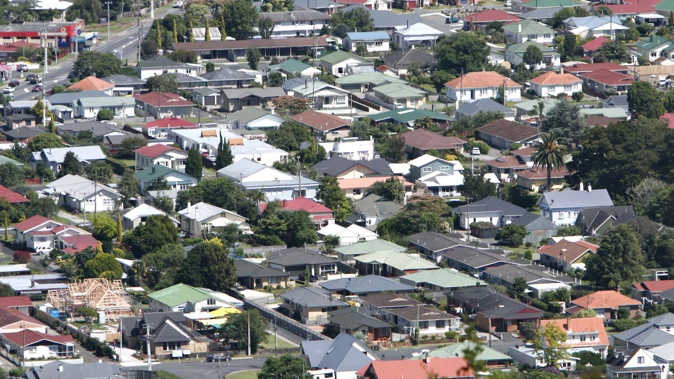
Property experts say house prices nationally have reached an all-time low and the market’s on the up for spring – but not in Northland.
According to latest One Roof.co.nz figures for the three months to the end of August, New Zealand’s average property value fell 1.7% to $956,000 in the winter quarter. Auckland’s average property value fell $50,000 to $1.278 million – its lowest point in three and a half years.
The winter slump hit hardest here in Northland though. The region’s average property value dropped 3.9% to $812,000 during the quarter.
Only four regions recorded growth during that time: Tasman (+1.6%), Otago (+1.3%), Gisborne (+1.1%) and Nelson (+0.4%).
However, the Reserve Bank’s (RBNZ) decision on August 14 to bring the Official Cash Rate (OCR) down by 0.25 percentage points to 5.25% was the “jump-start” the market needed, easing pressure on homeowners and buyers, One Roof editor Owen Vaughan said.
(To combat inflation, the RBNZ had previously hiked borrowing costs to the highest since the Global Financial Crisis, the GFC.)
The prospect of cheaper mortgages was triggering a surge in buyer interest. Buyer inquiries on OneRoof jumped 49% compared to the winter quarter in 2023.
The move had also unleashed a flurry of interest rate cuts by the major banks, with the competition between them expected to push the one-year rate below 6% before the end of the year, Vaughan said.
“The economy is still fragile, but the rate cuts will likely establish a buoyant spring housing market.”
He noted the strong correlation between rising buyer interest and tumbling mortgage rates.
One Roof editor Owen Vaughan. Photo / Ted Baghurst
“Falling house prices have also played their part. There is a sense that the housing market has finally reached the floor. Buyers will want to take advantage of current conditions before prices climb.”
Analysis of inquiry numbers before and after the rate cut in the regions and major metro areas showed strong lifts in Marlborough (+64%); Nelson (+36%) and the Bay of Plenty (+25%).
The figures also pointed to growing interest in beach homes, with Waiheke Island and Thames-Coromandel enjoying year-on-year spikes of 123% and 113% respectively.
Inquiries were still lagging in several centres though, including worst-hit Northland (-20.6%).

Property buyer interest in many parts of the country has moved sharply up since the Reserve Bank cut the Official Cash Rate in August. Northland is still in a slump but is expected to recover in line with the general trend soon. Graphic / OneRoof, NZ Herald
Dickie Burman, who has been in real estate since 1986, said that while Northland might currently still be a “buyers’ market”, it was likely the region would “fall into line” with the rest of the country’s upward turn “within the next month or so”.
Northland was already showing signs of a positive turn, Burman said. Since the end of the last school holidays and the OCR cut, he had noticed increased inquiries in Northland, more people at open homes and more offers on properties.
As an outlier region, Northland was reliant on people planning to come here rather than realising its potential while driving through. As such, it was generally at the mercy of the markets closest to it. If Auckland, Waikato and the Bay of Plenty were slow, then Northland was likely to be so too.
The uptick in inquiries he’d noticed recently wasn’t necessarily turning into deals, probably because vendors were “still a little bit above the market – or their expectations are, now that there are buyers out there”, Burman said.
“But I would think that in the next month or so you’ll see Northland probably falling into line with the rest of the country.
“These [OneRoof results] are just numbers, and you can crack numbers any way you like.”
It wasn’t necessarily the best way to assess the situation as numerous factors influenced the property market, such as availability of land and housing stock and debt-servicing ratios, Burman said.
“But I can see more activity coming and we’ve seen it already.”
Just that morning he’d heard in a sales meeting about a recent open home event in central Kerikeri for a property valued in the $1m-plus range, which had attracted 12 groups of people through.
“That’s unheard of at the moment,” Burman said.
The market hadn’t all been doom and gloom in Northland this year. Sales in Russell had been strong, and Whangārei had bucked the trend by being a “real cracker of a market”, Burman said.

The Reserve Bank's decision to cut the OCR is also great news for the rural sector, with the market already showing signs of lifting as we head into the traditionally busy spring months.
Meanwhile, rural real estate experts were also celebrating signs of an upturn after the OCR cut.
PGG Wrightson’s general manager for real estate, Peter Newbold, reportedly said the news was “massive” and respite from high interest rates was “long overdue”.
In May, Newbold estimated the rural sales market was roughly 30% down year on year.
He believed the OCR drop would be “enough to change sentiment within the sector”.
“I think it’s a fantastic move – it will drive change, and people will be a lot happier moving forward.”
Newbold, however, urged vendors to remain realistic.
“Just because the rates have changed and there’s more positive sentiment out there, it doesn’t mean values are going to increase.
“What it means is there’s more opportunities to sell your property.”
Sarah Curtis is a news reporter for the Northern Advocate focusing on a wide range of issues. She has nearly 20 years’ experience in journalism, much of which she spent court reporting. She is passionate about covering stories that make a difference.
Take your Radio, Podcasts and Music with you









